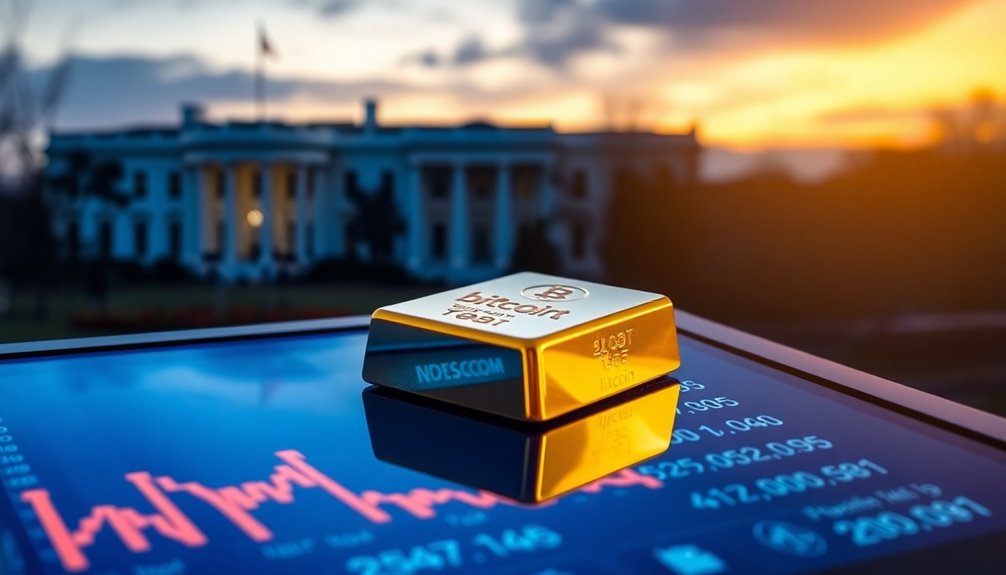Since Donald Trump took office, you might have noticed gold consistently outpacing Bitcoin as a preferred investment. This trend raises questions about what drives gold's appeal over Bitcoin, especially given the latter's notorious volatility. As you consider this shift, think about how economic policies and market perceptions play a role in shaping these asset dynamics. What factors make gold more attractive now, and could this trend continue?

When it comes to investing, how do you choose between gold and Bitcoin? Both assets have their merits, but since Trump assumed office, gold has been outperforming Bitcoin in several key ways. Understanding why this is the case can help you make a more informed decision.
Gold has long been viewed as a stable store of value, especially during economic uncertainty and inflation. Its historical performance showcases its reliability as a hedge against market volatility. While Bitcoin has captured the attention of many investors due to its potential for high returns, it's also known for its extreme volatility. Since Trump's presidency, gold has regained its status as a safe haven asset, especially as tax cuts and increased government spending have fueled inflationary fears. Recent bearish pressure following President Trump's election victory has also influenced market dynamics, leading to fluctuations in both assets' performances. Furthermore, monitoring market trends can be beneficial when deciding on investments in either asset class.
Gold remains a reliable safe haven during economic uncertainty, while Bitcoin's allure lies in its potential for high returns amidst volatility.
Under Trump's economic policies, the U.S. dollar has shown strength, which typically puts downward pressure on gold prices. However, the same policies have prompted interest in Bitcoin, as investors look for ways to protect their wealth from inflation. Still, gold has managed to hold its ground, as its intrinsic value remains appealing when economic conditions fluctuate. You must consider how these economic dynamics can influence your investment choices.
Regulatory attitudes also play a big role in how these assets perform. During Trump's administration, the favorable stance towards cryptocurrencies has led to increased interest in Bitcoin. Clear regulations can enhance investor confidence, but gold remains largely unaffected by such changes. The potential for a federal Bitcoin reserve could legitimize Bitcoin further, but as of now, gold stands resilient amidst market uncertainties.
Market sentiment can shift dramatically based on political events. Since Trump's election, Bitcoin prices have surged, but gold has consistently proven to be a more stable investment in turbulent times. Geopolitical tensions and economic uncertainties often sway investors toward gold rather than the more speculative Bitcoin. The anti-fiat narrative appeals to both assets, yet they cater to different investor sentiments.
Finally, consider the practical differences between these two assets. Gold is a physical asset, while Bitcoin operates on a decentralized digital network. While Bitcoin offers rapid global transactions, gold's physical nature limits its immediate use.
Ultimately, as you weigh the advantages and disadvantages of each, remember that gold's historical stability often makes it a safer long-term investment, especially in times of uncertainty.









